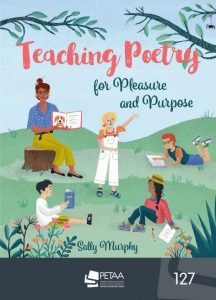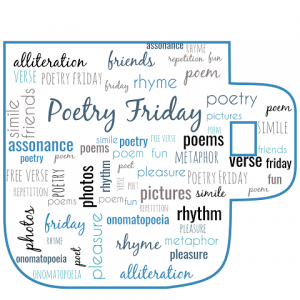It’s Poetry Friday. Last week I shared Dorothea Mackellar’s famous ‘My Country’ and it had such a lovely response that I thought I might share another classic Australian poem this week.
This one is perhaps less well known. It’s a ballad, by a Scottish-born Australian poem Mary Hannay-Foott. It’s a little haunting, but one I’m very fond of – enough that I included it in my Teaching Poetry book.
Where the Pelican Builds Her Nest
The horses were ready, the rails were down,
But the riders lingered still
One had a parting word to say,
And one had his pipe to fill.
Then they mounted, one with a granted prayer,
And one with a grief unguessed.
“We are going,” they said, as they rode away
“Where the Pelican builds her nest!”
They had told us of pastures wide and green,
To be sought past the sunset’s glow;
Of rifts in the ranges by opal lit;
And gold ‘neath the river’s flow.
And thirst and hunger were banished words
When they spoke of that unknown West;
No drought they dreaded, no flood they feared,
Where the pelican builds her nest!
The creek at the ford was but fetlock deep
When we watched them crossing there;
The rains have replenished it thrice since then,
And thrice has the rock lain bare.
But the waters of Hope have flowed and fled,
And never from blue hill’s breast
Come back – by the sun and the sands devoured
Where the pelican builds her nest!
Mary Hannay-Foott (1881)
That last stanza is a wee bit heart breaking, and I believe that the poem was written about two brothers who went off searching for fertile farming land (the pelicans build nests where there is water and food) and never returned. There is more about the poem here.
Coincidentally, I shared earlier this week, a lesson idea for guiding students to write sad poems. It is only as I write this post that I realise this poem is a really good example.
I’m off today to a small literary festival not far from home, so I’ll be checking in on the rest of the Poetry Friday fun a little later. Heidi will be hosting the roundup. Have a great Friday!
I’m late finishing the rounds this week, Sally, but glad I made it to you! I didn’t know you’d written a book about teaching poetry–how wonderful! It’s a story poem you’ve shared as well as a sad poem, and yet it demands something of the reader to get to that sadness. Thanks for sharing it!
Beautifully melancholic poem, thanks for sharing the link for more info on it. I’d like to read more of Mary Hannay-Foott’s poetry, appreciations for sharing it Sally, and including it in your book too!
Sally, I must have fallen asleep while reading your PF post yesterday because I do not see a response from me. I loved hearing your voice reading to us and also liked that you share your tips: modeling and providing choice options for writing poetry.
I read the extra information, too, Sally, & it seems the information comes from the parents, their heartbreaking loss. I can hear the song as I read the poem. Also, love that you share about children and writing sad poetry, a needed part of sharing their own heartbreak.
I lingered on:
The creek at the ford was but fetlock deep
I just love saying fetlock.
Writing out sad is such a good idea…so many students need to do that. Thank you for doing that and for showing us how even one so practiced in poetry can see a poem in a new way. You inspire!
Sally, while the poem shares a sadness, it is beautifully descriptive. I can imagine that a discussion after a read aloud would prove if the poem’s sadness affected the way students think. Thanks for sharing the poem.
I recall this poem from my school days as well, Sally. It is only now that I fully appreciate it deeper significance. I recall a quote from American Poet, Nikki Grimes ‘Children are emotionally and mentally complex human beings. Don’t limit their poetry exposure to humour. They deserve a more varied poetry menu than that.’ The full gamut of emotions is a rich field to explore. So sometimes sad poems deserve to be presented alongside the lighterside of the human condition. Thank you for writing about this important consideration..
Loved this poem, Sally. In the book, of course, but again , here.
Such lovely, understated lines, rich with meaning.
It’s beautiful isn’t it? It’s not one I remember hearing until I came across it a few years ago, but it’s now a firm favourite.